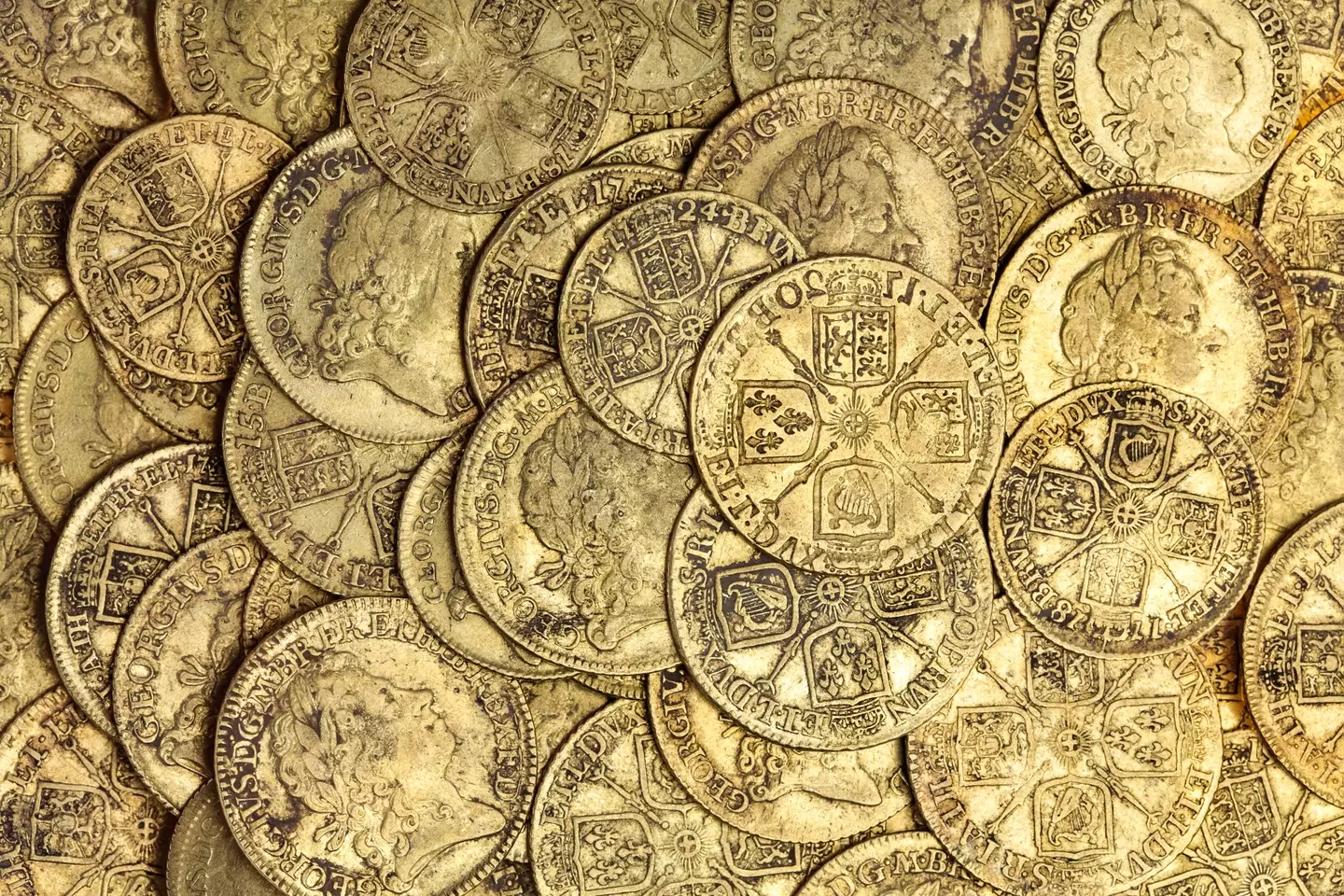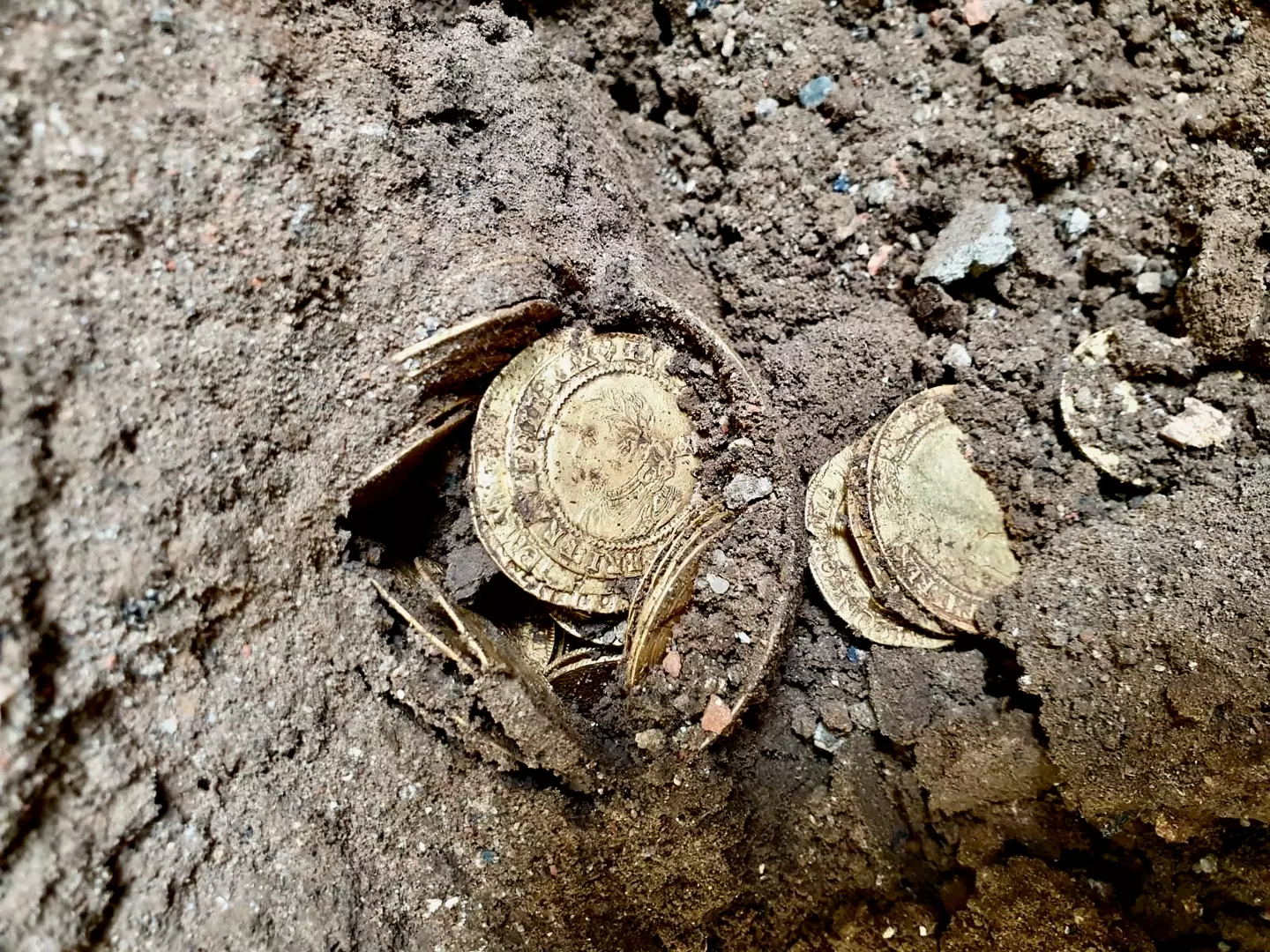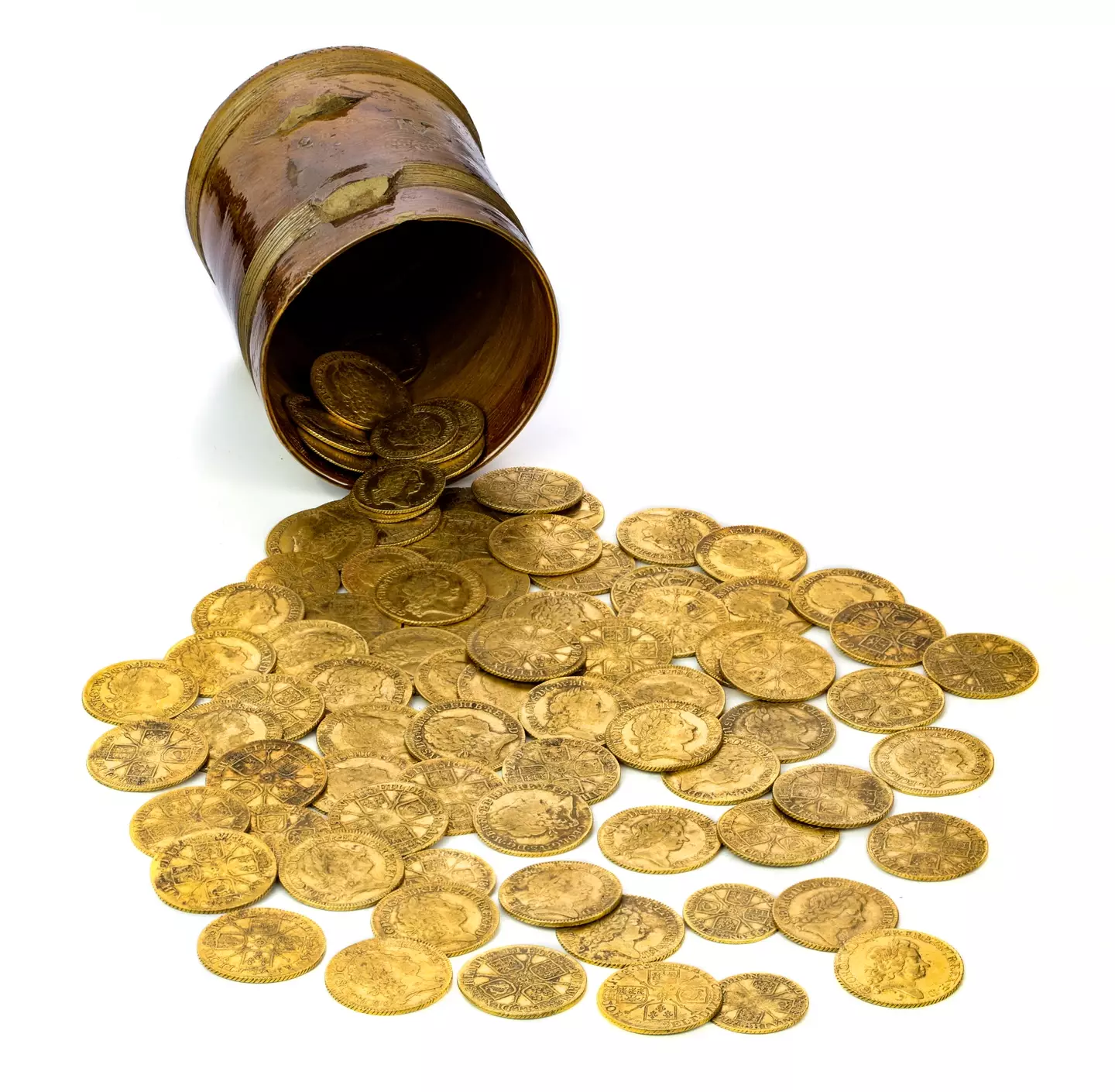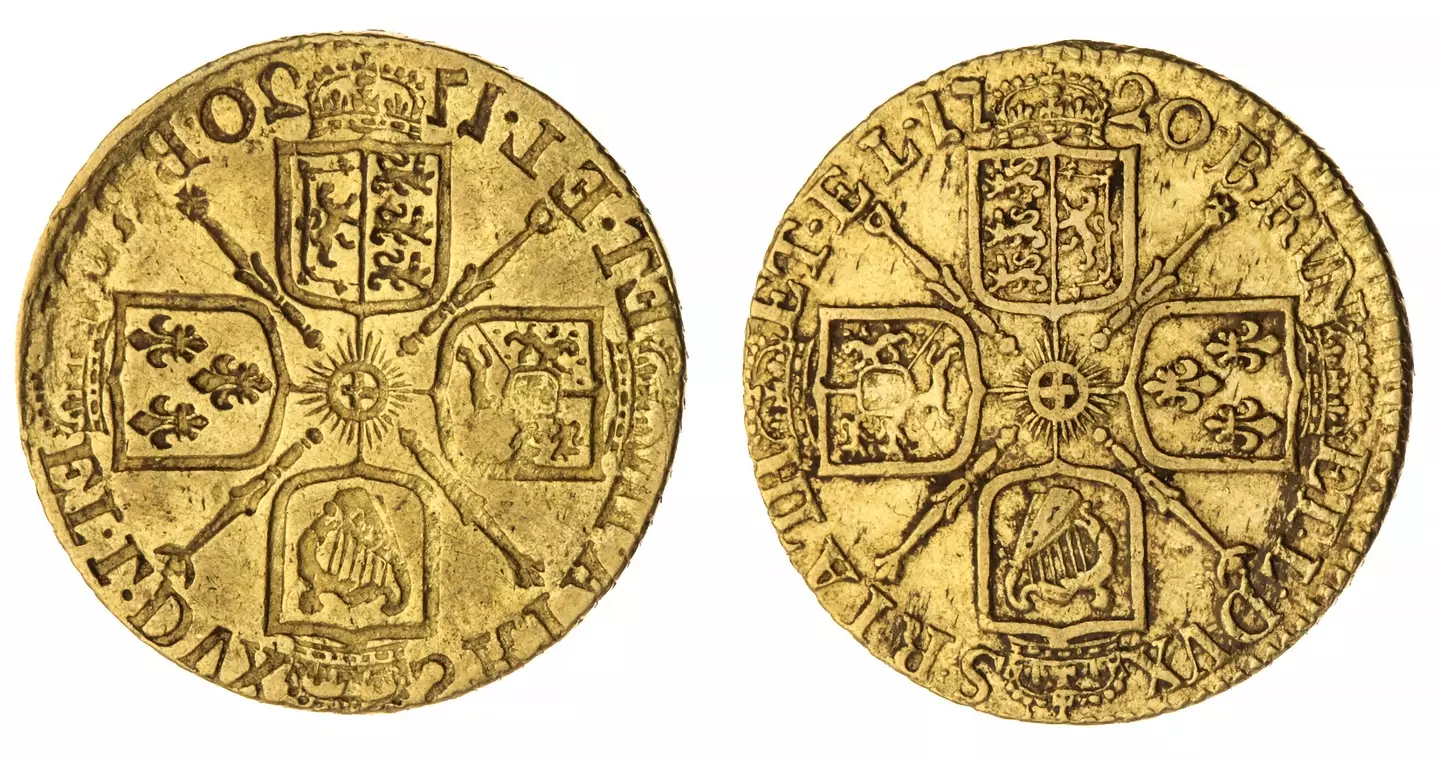
One lucky couple found an incredible hoard of gold coins buried under their kitchen floor.
Before you ask, no they don't live in Bilbo Baggins' house; the stash estimated to be worth £250,000 was actually found in their 18th-century property in Ellerby, North Yorkshire.
As you can imagine, the owners were thrilled with the collection, which has since been coined 'The Elderly Hoard' and will be up for auction this October.

Advert
The couple had lived at the property for 10 years and discovered the stash in 2019, initially thinking it was an electrical cable.
On closer inspection, they found gold coins in a pot about the size of a Coke can. They date from 1610 to 1727, from the reigns of James I and Charles I through to George I.
Not knowing what the coins were worth, because why would you, the couple contacted London-based auctioneers Spink & Son, who came to investigate.
The coins were traced as belonging to a wealthy, influential merchant family from Hull, called the Fernley-Maisters.
The family started out importing and exporting iron ore, timber, and coal - later serving as Whig politicians until the early 1700s.


Joseph Fernley and his wife Sarah Maister amassed massive wealth in their lifetime; Joseph died in 1725 and Sarah in 1945.
Now, their stash is being put up for sale, the highlight of which is a George I guinea from 1720, which has a mint error - the coin is missing the king's head.
That coin alone is expected to fetch up to £4,000 by itself and we're about ready to grab out metal detectors and look under our floorboards.
We weren't the only ones impressed by the find, with auctioneer Gregory Edmund saying: "This is a fascinating and highly important discovery. It is extraordinarily rare for hoards of English gold coins to ever come onto the marketplace.

"This find of over 260 coins is also one of the largest on archaeological record from Britain.
"It was an entirely serendipitous discovery. The owners were relaying the floor of their house and found a pot about the size of a Diet Coke can, full of gold.
"They've never picked up a metal detector in their life. They were just relaying a floor and thought it was an electrical cable at first."
Talk about incredible luck and the coins aren't just benefiting the couple who found them but our historical understanding of the British economy.
Edmund said: "They're not mint perfect coins, they are coins that have had a hard life.
"However the number of coins and unique method of burial presents an extraordinary opportunity to appreciate the complicated English economy in the first decades of the Bank of England and significant distrust of its new-fangled invention the 'banknote.'"